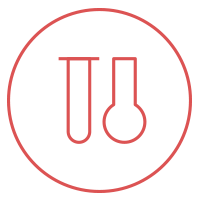关于美国奥运选手埃里扬·奈顿类固醇阳性的声明
2024-08-06
我们注意到《环球时报》发布了关于美国奥运田径新星埃里扬·奈顿(Erriyon Knighton)兴奋剂阳性疑点的报道。作为美国奥运田径代表队的选手,奈顿在今年3月26日的兴奋剂赛外检查中被查出呈类固醇(群勃龙)阳性。但美国反兴奋剂机构(USADA)在巴黎奥运会国内预选赛开始前突然作出决定,宣称奈顿的阳性结果是由运动员食用了受污染的肉类引起的,决定不对其实施禁赛处罚,并允许他最终代表美国参加巴黎奥运会。而USADA在面对中国游泳运动员兴奋剂污染事件时,却表现出典型的“双重标准”:一方面极力为本国运动员开脱,但另一方面却漠视世界反兴奋剂机构(WADA)多次解释与瑞士独立检察官报告,指责中国反兴奋剂中心和WADA一起“掩盖真相”,要求对中国运动员实施制裁。
正如媒体报道所言,奈顿兴奋剂阳性案件的诸多疑点仍悬而未决。据相关研究表明,群勃龙是一种蛋白同化制剂,具有极强的提升力量和爆发力的作用,并不是常见的污染物质。近年来,全球发生了数以百计的群勃龙阳性。据公开信息显示,绝大多数阳性都是基于四年禁赛的标准予以处罚,仅三名美国运动员因主张食品污染而逃脱了处罚。在奈顿案件中,该案件的独立仲裁员裁定,受污染的肉类来自佛罗里达州的一家餐馆。问题在于:USADA在事隔两个月后才开展调查,恰巧又从同一家餐馆购买的不同批次的牛肉中检出了群勃龙,如此巧合实在让人匪夷所思。如果美国市场的牛肉真是存在普遍的群勃龙污染,USADA是否开展过广泛的市场调查,是否做过数据统计,是否提醒过美国运动员注意肉食品污染的问题,是否研究过吃多少污染的肉类会导致运动员检测阳性?USADA负责人在WADA尚未审查案卷,上诉期限并未截止的情况下即发表公开声明宣称“正义得到了伸张”。更值得怀疑的是,该声明目前已被USADA从官网中撤稿,与之一并被撤稿的还包括其过往无过错污染案件的声明与报道。如此反常的行动到底是在隐藏什么?
从奈顿案件中可见一斑:USADA嘴上倡导着维护公平纯洁,实际行为却背道而驰。其表态与实际行动自相矛盾更体现在美国的职业体育联盟和大学体育联盟(NCAA)自行制定反兴奋剂标准,与《世界反兴奋剂条例》存在明显冲突,USADA也不对他们进行检查,形成了巨大的体育暗箱。USADA是《世界反兴奋剂条例》的签约方,但作为美国收视率最高的几个职业体育联赛的联盟——美国职业棒球大联盟(MLB)、美国职业篮球联赛(NBA)、美国职业橄榄球大联盟(NFL)以及北美职业冰球联盟(NHL)却不受《世界反兴奋剂条例》的管辖,且作为绝大多数最成功的美国运动员的培育者——NCAA也未签署《世界反兴奋剂条例》。2006年的《米切尔报告》曾指出超过八十五名现役和退役棒球运动员使用了兴奋剂,有球员声称,百分之四十、五十,甚至百分之八十的球员都在使用类固醇。WADA现任主席班卡在近期会议中表示:“高达90%的美国运动员,包括职业和大学体育运动员没有遵守WADA相关条例。”此外,2020年生效的《罗琴科夫反兴奋剂法》允许该国对国际体育赛事中的兴奋剂事件实行“域外刑事管辖权”。该法案声称是为了打击兴奋剂行为,但却将美国国内的职业联赛、大学联赛等赛事排除在外,这也说明美国政府对于其国内外的反兴奋剂工作明显采用了双重标准。
USADA对自身长久以来的反兴奋剂“陋习”视而不见,反而执迷于“越界管辖”,要求对其他国家实施制裁,妄图通过指责、打击中国及其他国家以转移其国内反兴奋剂工作中存在的严重缺陷,这是赤裸裸的政治操弄和虚伪双标。自今年4月以来,美国国会、反兴奋剂机构、媒体在中国游泳运动员食品污染案件上故意选择性失明失聪,企图通过捏造构陷混淆是非,让国际社会与民众产生错误认知,并借此将反兴奋剂问题政治化,鼓动美国司法部和联邦调查局动用国内司法和政治手段进行调查,发起对该事件的“长臂管辖”。如此不顾吃相的恶劣行径,不仅是彻头彻尾的“双重标准”,还是对“公平公正”理念的肆意践踏。我们再次强烈敦促USADA停止人为制造虚假叙事和泛政治化的认知操弄,停止扰乱和破坏运行有效的世界反兴奋剂秩序和治理体系,停止以所谓的“法律手段”搞威胁施压和滥施“长臂管辖”;重新审视其在处理兴奋剂案件时的方法和原则,确保其行动与全球反兴奋剂体系的宗旨相符,并且在反兴奋剂工作中能够展现出应有的诚信和一致性,以重新获得国际社会对其工作的信任。
CHINADA Statement on the U.S. Olympian Erriyon Knighton’s Positive Test for Steroid
China Anti-Doping Agency (CHINADA) noted that the Global Times has published a report on the doubts about the Adverse Analytical Finding (AAF) case of the U.S. sprinting star Erriyon Knighton. Knighton, a member of the U.S. Olympic track and field team, tested positive for a banned steroid (trenbolone) during an out-of-competition test on March 26. In a surprising turn, the United States Anti-Doping Agency (USADA) abruptly decided before the start of the domestic qualifiers for the Paris Olympics that no ineligibility would be imposed on Knighton, claiming that Knighton’s positive result for trenbolone was caused by his ingestion of contaminated meat, and allowed him to eventually represent the United States at the Paris Olympics.
However, when it comes to the contamination cases of the Chinese swimmers, USADA has shown a typical double standard by trying its best to clear American athletes on one hand, but on the other hand accusing CHINADA and the World Anti-Doping Agency (WADA) of “covering up the truth” and demanding sanctions against Chinese athletes while ignoring the repeated clarifications by WADA and the report by the Independent Prosecutor.
As reported by the media, many suspicions about Knighton’s AAF case remain unresolved. Studies have shown that trenbolone is an anabolic agent with strong enhancing effects on strength and explosiveness, and is not a common contaminant. Hundreds of AAF cases for trenbolone have occurred around the world in recent years in total, and publicly available information shows that while the athletes involved in most of these trenbolone AAF cases were essentially given a four-year ineligibility, three American athletes have escaped sanctions by claiming food contamination. In the Knighton case, the independent arbitrator concluded that the contaminated meat in this case came from a restaurant in Florida. Here’s the problem: it’s a strange coincidence that while USADA didn’t start investigation until two months later, it happened to detect trenbolone in a different batch of beef purchased from the same restaurant. If there is indeed widespread beef contamination of trenbolone in the U.S. market, has USADA ever conducted an extensive market research and collected data? Has it warned the American athletes about the problem of meat contamination? Has it studied how much contaminated meat can cause a positive test? The CEO of USADA publicly declared in a statement that “justice was served” before WADA had even reviewed the case and before the deadline for appeal had yet expired. What is even more suspicious is that this statement has now been removed from USADA’s website, along with its previous statements and releases on no-fault contamination cases. What are they trying to hide behind this unusual action?
The Knighton case just shows that USADA’s rhetoric about fairness and clean sport runs counter to its actual practices. This contradiction is even more evident in the fact that the main professional leagues and the National Collegiate Athletic Association (NCAA) of the U.S. have their own standards for anti-doping that are in clear conflict with the World Anti-Doping Code (the Code), and that these athletes are not subject to any testing by USADA. This has created a huge backroom in sport. While USADA is a signatory to the Code, the most-watched sports leagues in the U.S.—the Major League Baseball (MLB), the National Basketball Association (NBA), the National Football League (NFL), and the National Hockey League (NHL)—are not protected by the Code, and the NCAA, the cradle of the vast majority of the most successful American athletes, has not signed the Code. The Mitchell Report published in 2006 named more than 85 active and retired baseball players who had doped. Some players claimed that 40%, 50%, or even 80% of the baseball athletes were taking steroids. The WADA President, Mr. Witold Banka also pointed out in a recent meeting that “90% of American athletes, those in pro leagues and college sport, don’t compete under World Anti-Doping Code”.
In addition, the Rodchenkov Anti-Doping Act, which came into effect in 2020, asserts criminal jurisdiction over doping cases in international sports events that occurred outside its national borders. This act, while claiming to be combating doping offenses, excludes its domestic professional leagues, college leagues and other U.S. events. This is another obvious example of the double standards that the U.S. is practicing when targeting its anti-doping work towards American athletes and athletes from other countries.
The U.S. has turned a blind eye to its long history of doping problems, but is obsessed with “cross-border jurisdiction” and asserting sanctions against other countries. It seems that the accusation and attack on China and other countries is its tactic to deflect attention from the serious flaws in its own anti-doping work. This is sheer political manipulation and hypocritical double standards. Since April this year, the U.S. Congress, USADA and the U.S. media have adopted a selective approach when it comes to the contamination cases of the Chinese swimmers when they attempt to mislead the international community and the general public by confusing right and wrong through fabrication and frame-up. Moreover, they are trying to politicize anti-doping by instigating the U.S. Department of Justice and the Federal Bureau of Investigation to initiate a “long-arm jurisdiction” over this case by opening an investigation using its domestic judicial and administrative means. Such utterly disgraceful and despicable attempts are not only a stark double standard, but are also wanton violations of the principles of fairness and justice.
Once again, we urge USADA to cease fabricating false narratives, politicizing anti doping and manipulating public perception, to stop disrupting and undermining the well-functioning world anti-doping order and global governance system, and to put an end to the abuse of “long-arm jurisdiction” and threatening and pressuring with so-called “legal means”. We call on USADA to review the approaches and principles it has adopted in doping cases to ensure compliance with the goals of the global anti-doping system, and to demonstrate due integrity and consistency in their work. This is the right way to regain trust of the international community in its anti-doping work.











